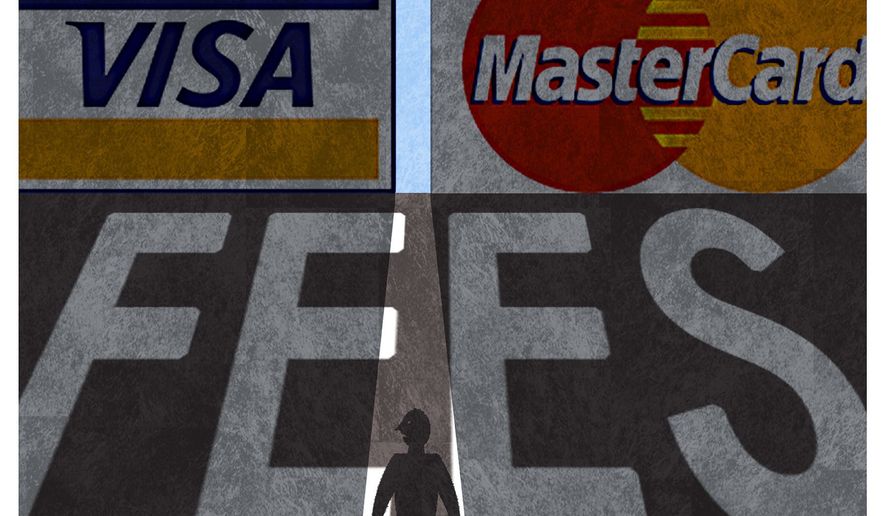OPINION:
Choice. Competition. Lower costs.
These are things that everyone wants in today’s economy. Yet when it comes to credit card fees, they’re nowhere to be found — and it’s crushing small businesses and their customers. Main Street and millions of families nationwide are counting on Congress to right this wrong. The future of small business and the communities they anchor would benefit.
The credit card fee crisis has been building for years, yet in the wake of the pandemic, it’s worse than ever. Small businesses and customers are reeling from inflation, with price increases the inevitable result of worker shortages and supply chain snarls. Amid these terrible challenges, massive credit card companies have shockingly decided to raise the fees they charge small businesses and customers. It’s adding to insult to inflation injury at the worst possible time, costing money that Main Street needs to survive.
Credit card companies have more than doubled “swipe fees” in the past 10 years, with the most recent painful increases coming this past April. You may be asking: How can they get away with this brazen assault on small business? The answer is simple: There’s no real competition in the credit card market.
Consider what happens when someone swipes their credit card at a mom-and-pop store. The credit card company charges them two distinct fees that small businesses have zero control over.
To start, they have to pay a fee for the “network” that connects the small businesses’ bank to the credit card’s bank. The credit card company controls the network and isn’t required to offer other choices. Small businesses are stuck paying whatever the credit card companies demand.
If that’s not bad enough, credit card companies also set the “interchange” fee, also commonly referred to as the swipe fee. It’s usually the largest credit card fee, often costing 3% or more of a transaction, and the money goes straight from a small business to a bank. That’s a double wrong: Not only does a small business have no choice, but the credit card company is a third party controlling what Main Street pays Wall Street.
You read that right: Credit card companies are setting the rate that small businesses must pay to the banks. Somehow, individual banks cannot decide what a merchant should pay them for using a credit card and must have their rates set by credit card companies? This doesn’t pass the smell test.
In a competitive market, one business should not dictate what one business must pay to another unrelated business. This is the only market in the world where the two largest competitors in a market can announce the same increase in “interchange” fees, at the same time on the exact same day. This market is broken and has resulted in small businesses getting fleeced by some of the largest credit card companies and banks in the world.
These skyrocketing fees are pushing countless small businesses to the brink. Yet there’s no real way to push back. Small businesses are just that — small — so they don’t have the market power to negotiate with enormous credit card companies. That’s why Congress should immediately step in, providing the competition and choice that will lead to lower costs.
Right now, Congress is considering bipartisan legislation called the “Credit Card Competition Act of 2022.” It would require that credit card companies offer at least two networks on each credit card, which necessarily involves offering different fee structures. For the first time, small businesses would have options to choose from and can choose the most affordable option. What’s more, credit card companies would finally have to compete for business, just like small businesses have to compete for customers.
That should have happened a long time ago. The Credit Card Competition Act of 2022 and Congress should ensure it finally happens now. If the status quo continues, Main Street’s struggles will continue to worsen, stifling the small-business economic recovery. That’s the last thing America needs, so Congress should prioritize cutting costs and increasing choices that small businesses deserve and customers’ demand.
• Jeff Brabant is the director of federal government relations at the National Federation of Independent Business.




Please read our comment policy before commenting.